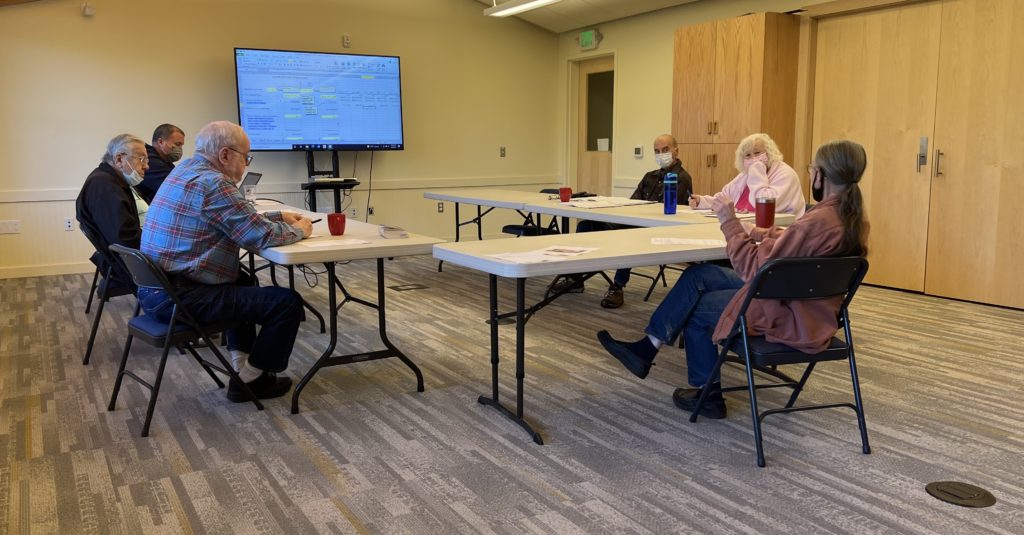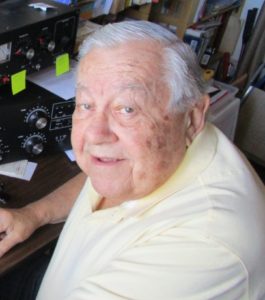
By QUINTON SMITH/YachatsNews.com
YACHATS – Uncertain how much money it needs to ask for and how to get that message across to voters, the Yachats Rural Fire Protection District board decided Tuesday to wait until November to seek another property tax levy.
The board said asking voters for a new – but of undetermined size – levy in May was too soon on the heals of a large request that voters rejected by a 56 to 44 percent margin last November. It was the first levy defeat in the district’s history.
The decision means the district will likely have to again borrow money again during its 2022-23 budget cycle, which it has been doing for four years but had hoped to end if last November’s levy had passed.
The district has had financial issues for at least four years because it had not requested small, regular increases in two operating levies as they came up for renewal every three years. So in November it asked voters to OK a property tax levy of $1.59 cents per $1,000 assessed value with the promise that it would let a 59 cent levy expire in 2022. That would have added $477 onto the tax bill of property assessed at $300,000 the first year, dropping to $300 once the smaller levy expired.
The tax levy would have brought in $944,000 more a year.
But voters rejected that request 566 to 729, with many saying it was too expensive and that the district was not clear why it needed the money, and had failed to address its administrative structure and its staffing and financial relationship with South Lincoln Ambulance.
Board member Drew Tracy said while waiting until November means another year of borrowing, it “distances us from the $1.59 levy that was a loser.”
The board voted 4-0 to approve Tracy’s motion to put some sort of levy on the November ballot. Board chair Katherine Guenther was absent, her fourth in the last five meetings.

Longtime district administrator Frankie Petrick endorsed waiting, saying the district board and supporters had not come up with a good way to get information out to voters by May.
“ … we need a little more time,” Petrick said. “If we go again without educating them, they’ll just say ‘We already said ‘No’.”
The board also said voters were confused by its promise in last fall’s campaign to let the 59 cent levy expire in July 2023, thus decreasing the effective amount to $1 per $1,000 after the proposed levy’s first year.
Trying to decide what’s next
Board members spent the rest of its special meeting Tuesday talking about getting more critical thinking and direction from its budget committee, which needs at least two new members, establishing a timeline for making financial decisions prior to November, and what it needs to do to get its message across.
The district missed a recent deadline to apply for a federal grant to fund one or two firefighters for three years, but will do so when the application window opens again later this year.
Petrick and assistant administrator Shelby Knife said they will also pursue other grants that could help with yearly operations.

Board member Don Tucker urged the board and administrators to work closely with Rep. David Gomberg, D-Otis, to better plug in to millions in state grants that are headed to communities as part of the Biden’s administration Build Back Better initiative.
“I’m just a little concerned that we’re not working with our state representative … and seeking whatever assistance is available because we’re having trouble getting money from the voters,” Tucker said.
Longtime board member Betty Johnston said a big tax increase would be hard on many senior citizens in the district trying to make ends meet.
“It’s not because we don’t want it, but there’s no money (for some) to pay for it,” she said.
Tucker echoed that sentiment, saying it wasn’t just property taxes, but inflation, world affairs, housing and the coronavirus pandemic that is affecting peoples’ outlook toward services.
“This is a helluva poor time to ask to do this,” he said. “If we don’t have a strong message selling ourselves, the public is going to say ‘No’.”
Background on levies, bond
The district’s current operating budget is $1.63 million a year and comes primarily from a permanent tax base and two voter-approved levies. Here’s the rundown:
- The district’s permanent tax base, established in 1997, is 29 cents per $1,000 assessed property value;
- A three-year levy that started in 1999 carries a tax rate of 61 cents per $1,000 of assessed property value; it was last renewed in 2019 by a 3-to-1 vote ratio;
- A three-year levy that started in 2008 is 59 cents per $1,000; it was last approved in May 2018 by a 3-to-1 ratio;
- In total, the three levies add up to a tax rate of $1.49 per $1,000 assessed property value or $447 a year on property assessed at $300,000.
- The district also has a building bond for its new fire station that carries a tax rate of 68 cents per $1,000 assessed value. That costs the owner of property assessed at $300,000 an additional $204 a year. But bond money can’t be used for year-to-year operating costs.
So currently, the owner of property assessed at $300,000 pays $650 a year via the tax base, two levies and building bond to support the fire district.
Last November’s request would have added an additional $477 per year on property assessed at $300,000 for its first year – resulting in that property owner paying a total of $1,127 a year for fire services.


